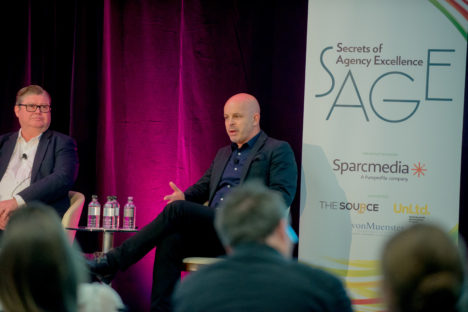‘There’s a revolution coming’ says Nathan Hodges; ‘agencies need to take control of the procurement process’
Agencies need to take control of the “rigour” and the “process” to procurement when pitching, Nathan Hodges told a room of independent agencies.
Speaking at yesterday’s SAGE conference in Sydney, TrinityP3 general manager Nathan Hodges defended procurement’s role in the pitch process.
“Procurement brings a rigour, and a logic and a system and a process to agency-client relationships and negotiations that is just not there if its left to the marketers and the agencies,” he said.



Easy to say for a pitch consultant who wins either way, regardless of who wins the contract. He’s still going to pocket his nice little consultant cheque. In a pitch-off, there are going to be agencies that show value through innovation and the ability to influence client businesses, and there are going to be agencies who show value through a price point. In experience, its the latter that are winning. As soon as that starts changing, you may see a greater degree of agencies selling themselves as such.
Lots of dubly speak here. Straight up – the trick with procurement is to ensure you can tangibly demonstrate value – compared to other suppliers and other prospective agencies. It’s that simple. Yes and do get to know them. Most of them wish to see you succeed.
The procurement people make a percentage of the money they ‘save’ the client. That’s the reality of how they make their money.
To put it bluntly, they are financially rewarded depending on how much they screw the agency.
To the client it looks like they are saving the client money (on paper) and then when the projects start coming in and the reality of the costs are seen the client still ends up paying the full price in addition to paying the procurer.